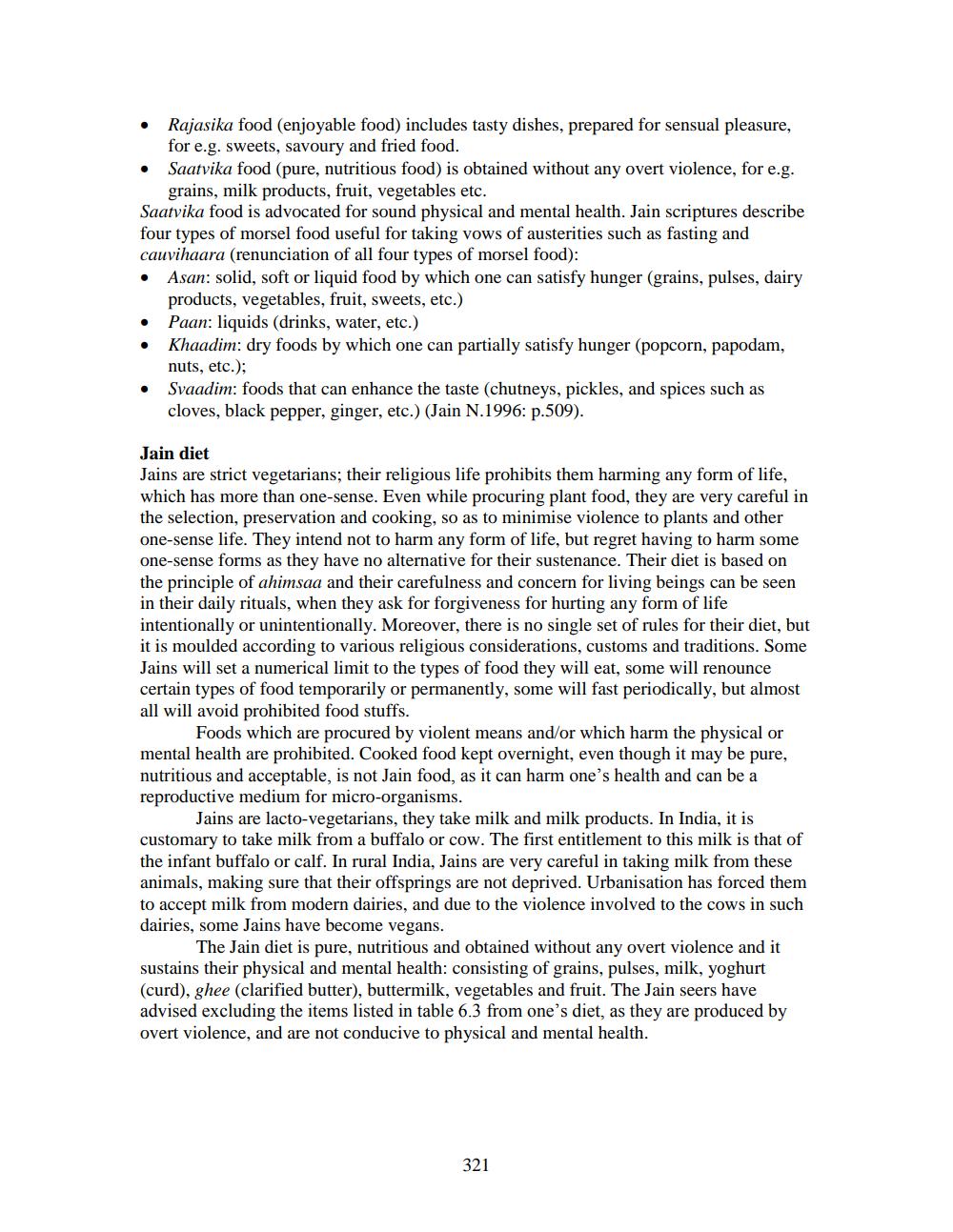________________
Rajasika food (enjoyable food) includes tasty dishes, prepared for sensual pleasure, for e.g. sweets, savoury and fried food. Saatvika food (pure, nutritious food) is obtained without any overt violence, for e.g.
grains, milk products, fruit, vegetables etc. Saatvika food is advocated for sound physical and mental health. Jain scriptures describe four types of morsel food useful for taking vows of austerities such as fasting and cauvihaara (renunciation of all four types of morsel food):
Asan: solid, soft or liquid food by which one can satisfy hunger (grains, pulses, dairy products, vegetables, fruit, sweets, etc.) Paan: liquids (drinks, water, etc.) Khaadim: dry foods by which one can partially satisfy hunger (popcorn, papodam, nuts, etc.); Svaadim: foods that can enhance the taste (chutneys, pickles, and spices such as cloves, black pepper, ginger, etc.) (Jain N.1996: p.509).
Jain diet Jains are strict vegetarians; their religious life prohibits them harming any form of life, which has more than one-sense. Even while procuring plant food, they are very careful in the selection, preservation and cooking, so as to minimise violence to plants and other one-sense life. They intend not to harm any form of life, but regret having to harm some one-sense forms as they have no alternative for their sustenance. Their diet is based on the principle of ahimsaa and their carefulness and concern for living beings can be seen in their daily rituals, when they ask for forgiveness for hurting any form of life intentionally or unintentionally. Moreover, there is no single set of rules for their diet, but it is moulded according to various religious considerations, customs and traditions. Some Jains will set a numerical limit to the types of food they will eat, some will renounce certain types of food temporarily or permanently, some will fast periodically, but almost all will avoid prohibited food stuffs.
Foods which are procured by violent means and/or which harm the physical or mental health are prohibited. Cooked food kept overnight, even though it may be pure, nutritious and acceptable, is not Jain food, as it can harm one's health and can be a reproductive medium for micro-organisms.
Jains are lacto-vegetarians, they take milk and milk products. In India, it is customary to take milk from a buffalo or cow. The first entitlement to this milk is that of the infant buffalo or calf. In rural India, Jains are very careful in taking milk from these animals, making sure that their offsprings are not deprived. Urbanisation has forced them to accept milk from modern dairies, and due to the violence involved to the cows in such dairies, some Jains have become vegans.
The Jain diet is pure, nutritious and obtained without any overt violence and it sustains their physical and mental health: consisting of grains, pulses, milk, yoghurt (curd), ghee (clarified butter), buttermilk, vegetables and fruit. The Jain seers have advised excluding the items listed in table 6.3 from one's diet, as they are produced by overt violence, and are not conducive to physical and mental health.
321




